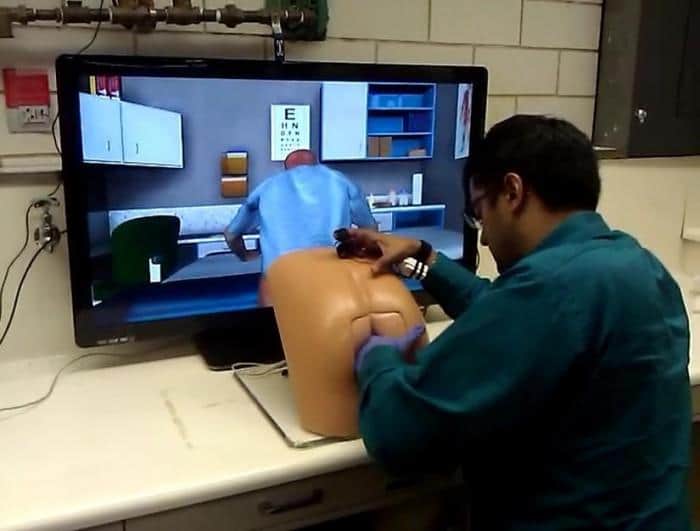SAN FRANCISCO (Web Desk) – Seeing one’s proctologist can truly be a pain in the butt, but thanks to medical technology it may be less so for men in the future.
A robotic derriere has been developed by scientists at the University of Florida, Drexel University and the University of Wisconsin-Madison, and supported by the National Science Foundation.
Called “Patrick,” scientists say the pseudo backside is helping proctology students in gaining an upper hand in carrying out what have typically been uncomfortable examinations for millions of men, KQED TV & Radio reported.
Fitted with four sensors, the equipment will tell a student whether they are applying the right amount of pressure and whether they are properly covering the prostate.
Such intimate exams have for decades often been uncomfortable for the patient and the physician, which is Patrick’s entire reason for being.
“Our goal is to get students more comfortable with these mortifying scenarios,” lead researcher Dr. Benjamin Lok said. “There aren’t enough opportunities for students to practice, which causes them a lot of anxiety.”
Patrick is also equipped to mimic real patients in nontechnical ways – such as providing unique medical histories, common symptoms and even a reluctance to agree to a prostate exam, allowing students the opportunity to improve their communication skills and inform patients why such an exam is important.
At present, many medical schools often pay a lot of money for actors to simulate patients to help students develop – an expense that Patrick could possibly eliminate sometime in the future.
Dr Lok said it will be difficult for any machine to replace human behaviour, but he does hope that the new technology will serve as a great tool for students to become better than they would have without it.
Patrick is already in use at the University of Florida and Drexel, scientists said, and they hope to commercialise the innovation and market it to medical schools around the world someday.
“In future, we want to make these conversations more realistic and provide a deeper challenge for students,” Dr Lok said.














